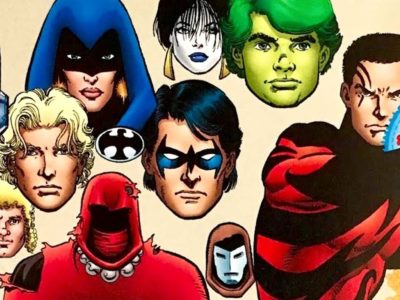
[ad_1]
Marc Spector and Hunter’s Moon have deeply different approaches to their faiths in Khonshu, and this theme of faith extends through the series.
WARNING: The following contains spoilers for Moon Knight (2021)
The upcoming Moon Knight series promises to be an intense examination of the titular hero’s psyche as Marc Spector deals with the actions of his other personalities. With appearances from Khonshu promised in promotional material, fans are expecting a trippy adventure into the psyche of one of the MCU’s first true superheroes.
The 2021 run of Moon Knight by Jed MacKay, Federico Sabbatini and Alessandro Cappuccio, however, has dropped quite a bit of the examination of Spector’s multiple personalities to examine one of the more philosophical portions of the Marvel universe. Namely, the question of how does one deals with faith when in the presence of gods.
Marc Spector’s Faith And Heritage Are At Odds With His God
Marc Spector is a Jewish man who, in Moon Knight (2021) #7, confesses to feeling lost because of losing his heritage and faith. His father was a Rabbi, but Marc, in spite of being Jewish, fell at the feet of a Pagan Egyptian god. Now, he serves as the sole “priest” for a god whom he sees and believes to be a horrible, vengeful being.
This crisis of faith has resulted in Marc’s faith becoming less centralized. His belief is no longer in Khonshu. Rather, it is in his slowly growing number of allies and friends. Marc doesn’t believe in Khonshu anymore. Now, Marc believes in himself and his friends. Faith for Marc Spector is something earned by kindness and love.
Hunter’s Moon Demonstrates A Different Faith From Moon Knight
Moon Knight (2021) #8 switches perspectives to that of Hunter’s Moon. No longer a rejected, mistreated son of Khonshu, Hunter’s Moon demonstrates what a fish of Khonshu should be able to accomplish. What’s more, he fully believes in Khonshu, the avatar of faith in his particular line of religion.
This issue’s exploration of faith doesn’t stop with Hunter’s moon. In fact, the primary villain is a new god who has materialized from the faith of her deceived followers. Stained Glass Scarlet’s aetheric, apparently unfinished form reflects her newness and the unsettled faith she is founded upon. Khonshu’s form appears on the same page, though, clearly defined with the skull of a crow and ancient robes. Faith gives the beings substance, and the faith of those who believe in them gives them power. That power, however, is refined by age and experience, hence Khonshu’s easy destruction of Stained Glass Scarlet.
This faith in the inhuman gives it power, much as is often shown in narratives dealing with the creation and destruction of the metaphysical. However, this narrative doesn’t have the contrast of needing and giving faith for no reason. The creation of the strongest forms of these supernatural beings, be they gods or heroes, is only brought about by believing in others and others believing in them.
Though primarily for entertainment, literature just as often has a purpose. In this run of Moon Knight, the purpose is to find the definition of faith. Though it offers more questions about faith than answers, the narrative makes one point very clear. Faith is power, and true strength derives only from it.
About The Author
[ad_2]






